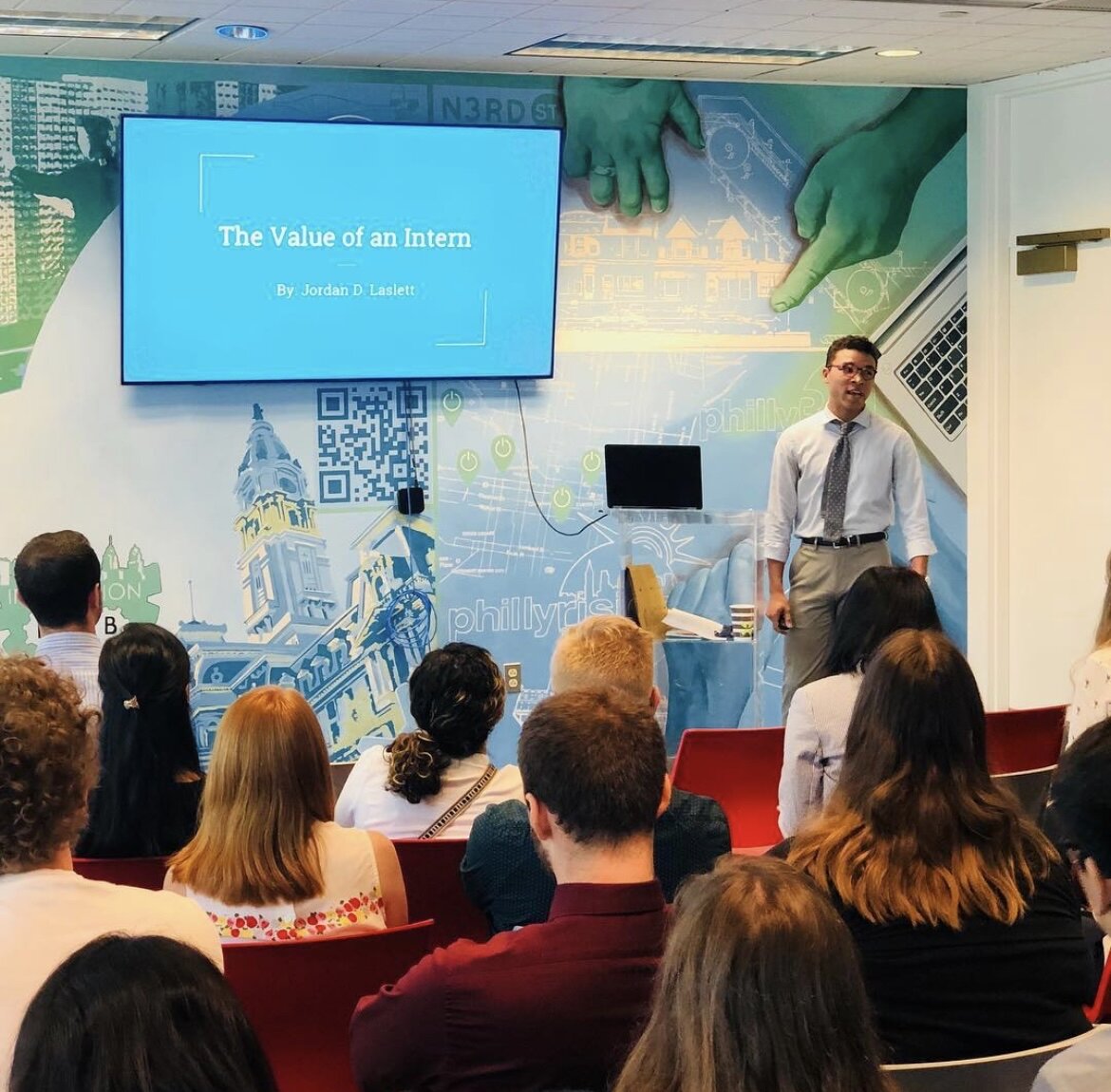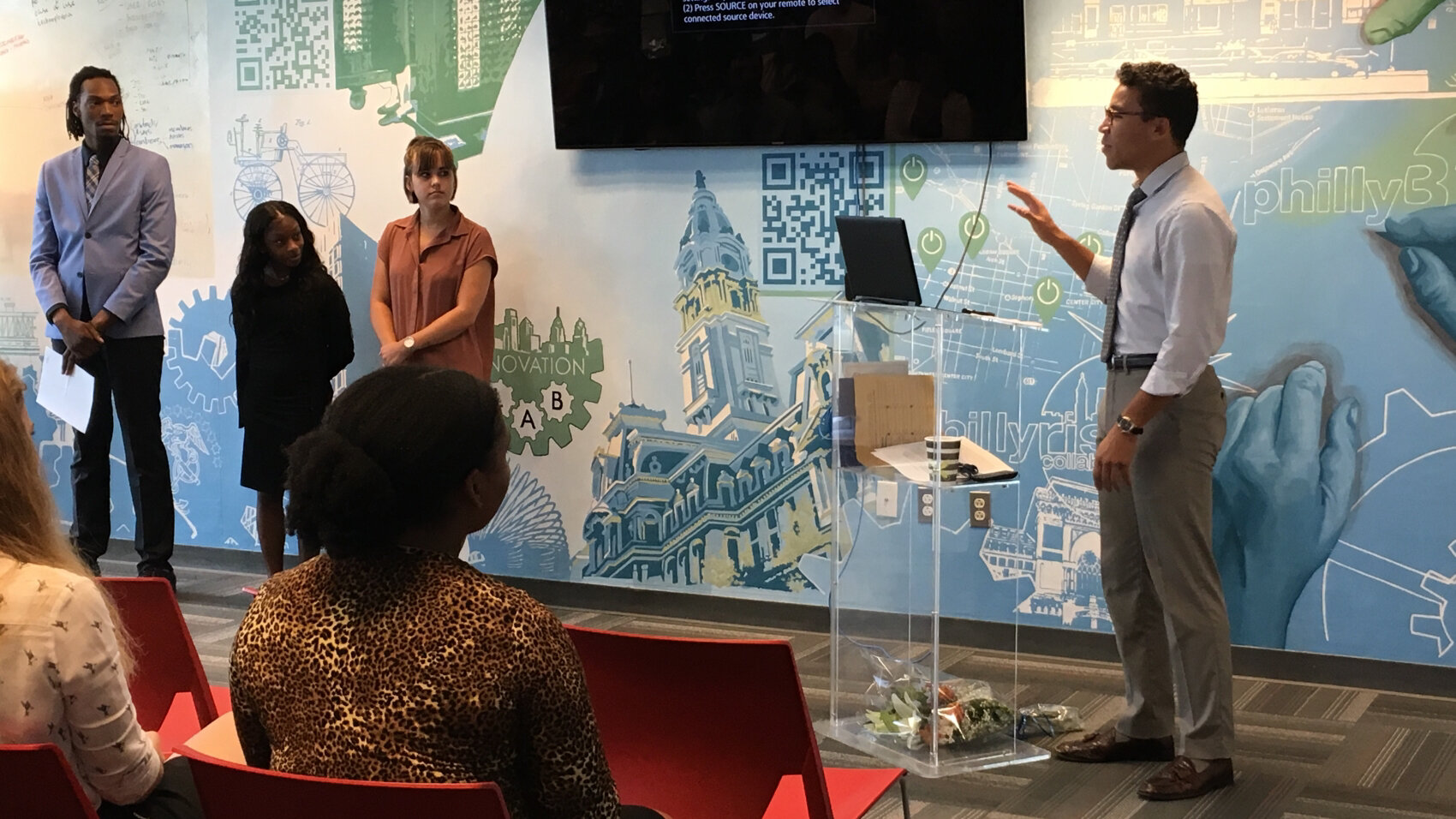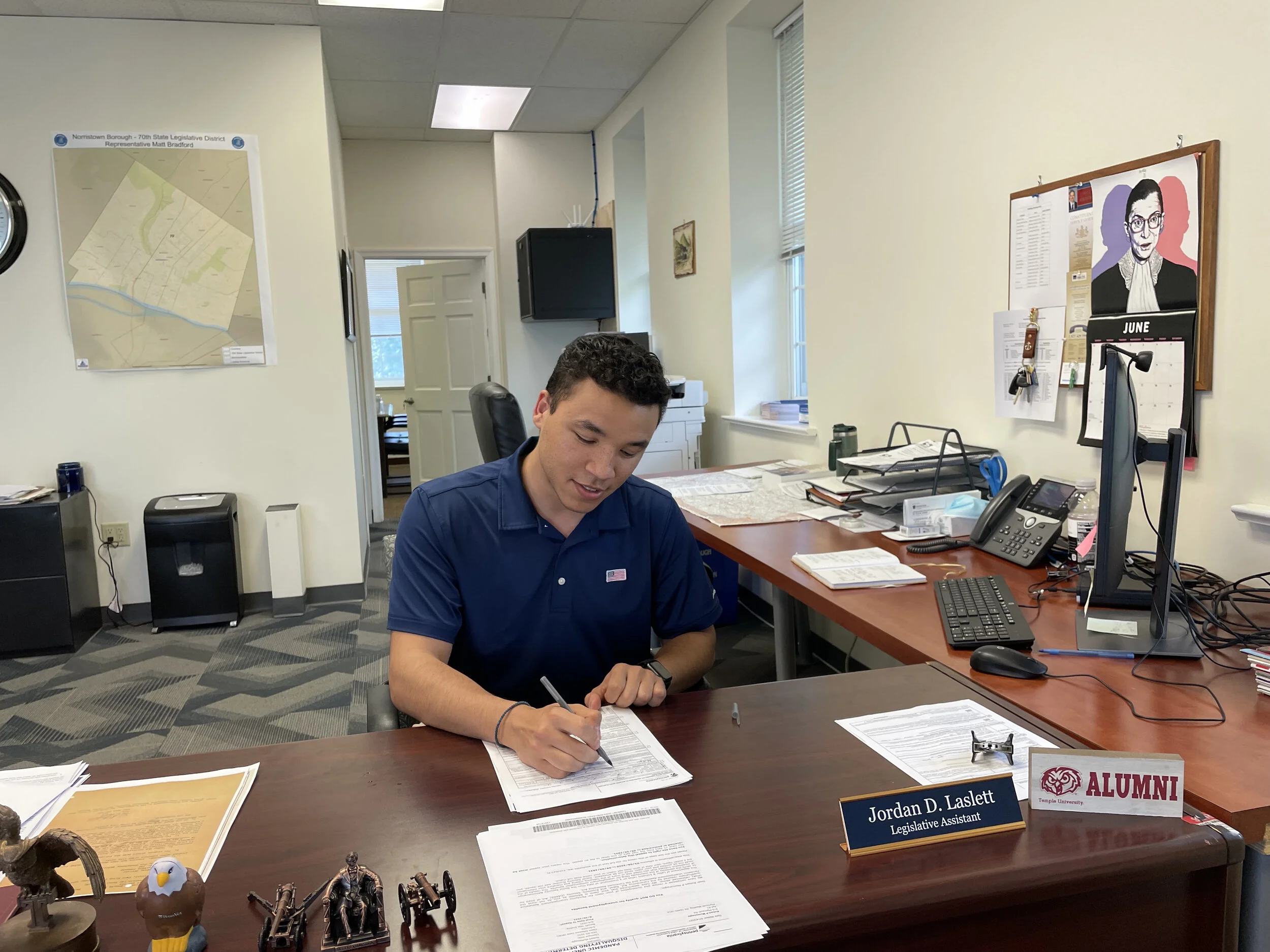When Jordan Laslett was hired for the summer of 2018 as an AmeriCorps VISTA at the City of Philadelphia, he was energized. A rising senior in college, he knew that this job was a foot in the door in government, where he wanted to make his career. It wasn’t well-paid; he did the math and it would have worked out to about $13,000 for a year’s work. But it paid the bills and allowed him to do innovative work with the community, coordinating a career empowerment fair to teach others how to get jobs in state and local government.
As project manager of this initiative, he got to work with other interns around the City, including those in the Mayor’s Internship Program. Jordan worked side by side with a handful of them to implement the career empowerment fair, which was a success.
They became friends, and throughout the experience, the interns joked about the fact that they were doing the same work, but Jordan was being paid and they weren’t. The dozens of young people who served in the Mayor’s Internship Program were working as volunteers, with no guarantee of a future job in the agency. After hearing their stories over many lunches, Jordan got passionate that they, too, should be paid for their work. He also recognized that the interns who were able to work for free were, in a sense, the lucky ones. How many people with less financial means were excluded from the program?
At the end of the summer, Jordan was left with a few weeks on his contract and nothing left to do on his assigned project. So he checked with his intern friends and asked if they would support him making the case that interns in their program should be paid. They did. With that, he got to work gathering the data he needed to make a surprise presentation on the topic at the big end-of-the-summer event:
“I did not start off by telling my supervisors about it. It was one of those things where it was like, I know this was going to ruffle feathers and I knew that there were a few key folks that knew that I was working on something for the interns but I made it very abundantly intentional to not really expose my hand too much, knowing the Mayor was going to be there, knowing HR was going to be there. At the time I had this streak in me.”
Jordan worried that making a scene at the final presentation could ruin his chances for a career in government, or at least at the City of Philadelphia. But he pressed forward and gathered the data. Meeting with the interns frequently, he passed out surveys that asked about their commutes, their rent and expenses, whether a third party was sponsoring them, and so on. He also did the math on what a paid internship program would cost: he calculated it would only be $80,000 to pay 50 interns minimum wage for 25 hours a week in the summer.
When the big day arrived, Jordan was ready. When he was called up for his presentation, he asked the other interns to come up front and join him. It got immediately uncomfortable in the room when as began to share each other’s stories of working as unpaid interns. For an hour, in front of the city’s senior staff and the public, Jordan presented the data and argued that if they city wanted to live up to its progressive values, it needed to pay its interns.
After the presentation, a journalist from Temple News who had been in the audience approached Jordan for an interview. The next day, he and his pitch for paying interns was featured on the newspaper’s front page. After that, he says, “it was a domino effect and everything moved quickly.” Other media picked up the story, and national advocacy organizations reached out to him to offer support. Within three months, the City of Philadelphia announced it would be paying its interns moving forward, a decision that has been met with celebration locally and nationally. And Jordan, personally, has experienced only positive feedback from city officials and staff.
Of course, at the beginning, he didn’t know it would turn out this way:
“I definitely put my neck out there without realizing it and I think I took a huge risk in terms of having that go nowhere and having nothing to show for the effort.”
It took immense courage for an intern to take this kind of stand. It also took the connection he had with other interns and supportive staff to formulate the proposal.
Today, Jordan is putting those same superpowers of courage and connection into his work as legislative assistant for State Representative Matt Bradford. Working with constituents with urgent needs is tough because it exposes system failings, and how they create pain for real people. Gaps in the systems affect their constituents, who come to him for solutions. Every day he’s faced with difficult situations, such as people potentially losing their homes due to issues like overdue electricity bills.
How does he deal with the stress of the job, and the disappointment of witnessing unjust systems up close and personal every day? He grounds himself in his purpose, and why he chose public service. He takes satisfaction in building relationships with constituents and finding creative solutions for them. He notices and documents opportunities for improvement, then identifies the right time and decision-maker to bring them to for consideration.
But what is his #1 strategy for keeping healthy, sane, and motivated as a Herocrat trying to make systems work better for people? He latches onto the success stories and savors them. Like that time he saw his shot to get city hall interns paid, and he took it.




